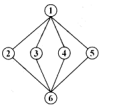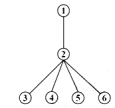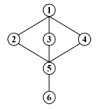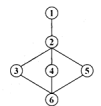阅读下列短文,从每题所给的A、B、C和D四个选项中,选出最佳选项。
Recently, I asked a seeing friend who had just walked in the woods what she had noticed. “Nothing special,” she replied.
How was it possible, I asked myself, to walk through the woods and see nothing worthy of note? I who cannot see find hundreds of things to interest me only through touch. If I can get so much pleasure from touch, how much more beauty must be found by sight(视力)? And I have imagined what I should most like to see if I were given the use of my eyes for just three days.
On the first day, I should want to see the people who have made my life worth living and the books which have been read to me. In the afternoon, I should take a walk in the woods and admire the beauties of nature. That night, I should not be able to sleep.
On my second day, I should go to the museums to see man’s progress. I should try to explore the spirit of man through his art. In the evening, I should spend at the movies.
The following day, I should spend in the world of common people going about the business of life. At midnight permanent(永久的)night would close in on me again, and I should realize how much I had left unseen.
I who am blind can give one suggestion to those who see: Use your eyes as if tomorrow you would be blind. The same is true of other senses. Hear the songs of birds, as if you would be deaf tomorrow. Smell the flowers, as if tomorrow you could never smell again…But of all the senses, I’m sure that sight must be the most pleasant.
(Adapted from “Three Days to See” by Helen Keller)
(1)What makes the writer start imagining the three days?
| A. |
Walking in the woods. |
B. |
Asking herself questions. |
| C. |
Seeing natural beauty. |
D. |
Touching interesting things. |
(2)What does the writer want to do during the three days?
| A. |
Read books to people on the first day. |
B. |
Go to the movies on the second day. |
| C. |
Succeed in business on the third day. |
D. |
Have a wonderful dream every day. |
(3)What does the last paragraph mainly talk about?
| A. |
A description of different senses. |
B. |
A method of living a pleasant life. |
| C. |
Encouragement to the blind people. |
D. |
Advice to people without disabilities. |
(4)Which is the best structure(结构)of the passage?
(①=Paragraph 1 ②=Paragraph 2…)
| A. |
|
B. |
|
C. |
|
D. |
|
(5)Which of the following sayings may the writer agree with?
| A. |
Time is what we want most, but what we use worst. |
| B. |
Never leave until tomorrow what you can do today. |
| C. |
Live every moment and be thankful for what you have. |
| D. |
The future belongs to those who are preparing for it now. |



